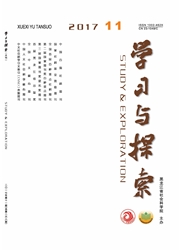

 中文摘要:
中文摘要:
我国货币增长不确定性的根源可以划分为货币政策冲击和宏观经济冲击两个层面,通过检验我国货币增长不确定性与经济增长之间的关系,结果显示:货币增长不确定性主要由宏观经济冲击所引致;1998年以前的货币增长不确定性比较剧烈,1998之后的货币增长不确定性明显减弱;由货币政策冲击导致的货币增长不确定性能够有效地促进经济增长,这意味着货币政策调控的有效性;但2003年以来,由宏观经济冲击导致的货币增长不确定性对经济增长起到了抑制作用,这说明以国际金融危机为代表的经济冲击对我国经济稳定增长产生了显著的消极影响,需对此进行积极的国家经济风险预警和防范。
 英文摘要:
英文摘要:
Monetary growth uncertainty in China can come from either monetary policy shocks or macroeconomic shocks. Our examination of the relationship between Chinese economic growth and monetary growth uncertainty indicates that monetary growth uncertainty results mainly from maeroeconomic shocks. The pre-1998 period saw quite a high level of uncertainty, but this was markedly reduced after 1998. Monetary growth uncertainty caused by monetary policy shocks can be an effective stimulus for economic growth, implying the effectiveness of monetary policy regulation. From 2003 on, however, monetary growth uncertainty caused by macroeconomic shocks has inhibited economic growth, indicating the marked negative impact on China's steady growth of the economic shock represented by the international financial crisis. Active measures should be taken at the national level for early warning and prevention of economic risk.
 同期刊论文项目
同期刊论文项目
 同项目期刊论文
同项目期刊论文
 期刊信息
期刊信息
